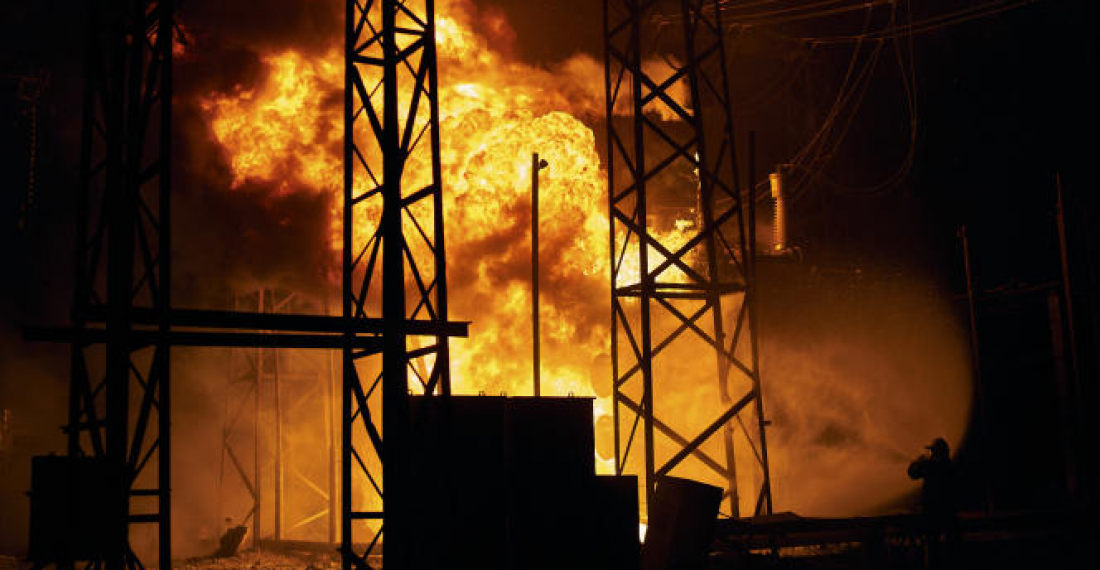Russia attacked power stations and other civilian infrastructure in Ukraine on Sunday (11 September), causing widespread outages across the country as Kyiv’s forces pressed a swift counteroffensive that has driven Moscow’s troops from large swaths of territory it had occupied in the northeast.
The bombardment ignited a massive fire at a power station on Kharkiv’s western outskirts and killed at least one person. President Volodymyr Zelensky denounced the “deliberate and cynical missile strikes” against civilian targets as acts of terrorism.
Ukraine’s second-largest city of Kharkiv appeared to be without power Sunday night. Cars drove through darkened streets, and the few pedestrians used flashlights or mobile phones to light their way.
Separately, the Zaporizhzhia Nuclear Power Plant in the Russia-occupied south completely shut down in a bid to prevent a radiation disaster as fighting raged nearby.
The pullback of Moscow’s forces in recent days marked the biggest battlefield success for Ukrainian forces since they thwarted a Russian attempt to seize Kyiv near the start of the war. The Kharkiv campaign seemed to take Moscow by surprise; it had relocated many of its troops from the region to the south in expectation of a counteroffensive there.
Yuriy Kochevenko, of the 95th brigade of the Armed Forces of Ukraine, tweeted a video from what appeared to be central Izyum. The city was considered an important command and supply hub for Russia’s northern front.
“Everything around is destroyed, but we will restore everything. Izyum was, is, and will be Ukraine,” Kochevenko said in his video, showing the empty central square and destroyed buildings.
Meanwhile, the Ukrainian General Staff said Russian troops also had left several settlements in the Kherson region, in the southern part of the country, as Kyiv’s forces pressed the counteroffensive. It did not identify the areas.
But an official with the Russian-backed administration in the city of Kherson, Kirill Stremousov, said on social media that the city north of the Crimean Peninsula was safe and asked everyone to stay calm.
The Russian Defense Ministry said Saturday the withdrawal from Izyum and other areas was intended to strengthen Moscow’s forces in the neighboring Donetsk region to the south. The explanation was similar to how Russia justified pulling back from Kyiv earlier this year.






